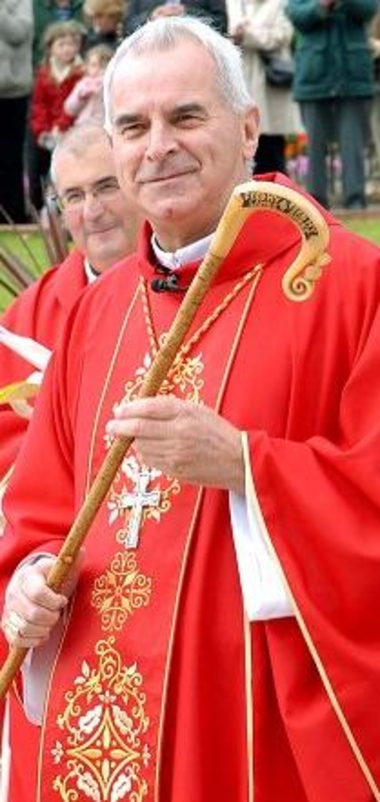UK Cardinal resigns; known for attacks on same-sex marriage

Cardinal O'Brien's views have sparked controversy
SYLVIA HUI,Associated Press
LONDON (AP) — Cardinal Keith O'Brien had sparked more than his fair share of controversy before stepping down as archbishop of St. Andrews and Edinburgh on Monday and announcing he wouldn't take part in the conclave to elect the next pope.
Known for his outspoken stances on abortion, same-sex marriage and flip-flopping on priestly celibacy, Britain's most senior Roman Catholic leader raised eyebrows even before he was named cardinal in 2003.
In recent years he has been noted for his blunt attacks on gay unions and abortion, which are very much in line with the Vatican position but which critics at home have said were unnecessary interventions into political life.
On Monday, O'Brien recused himself from the conclave to elect the next pope after allegations that he approached three priests and a former priest in an "inappropriate" manner were published in The Observer newspaper. The Vatican is investigating the allegations. Here are some of his statements:
___
GAY MARRIAGE: "HARMFUL"
O'Brien appeared to take an accepting stance toward homosexual priests around the time when he was appointed cardinal in 2003.
"If they are leading a celibate life, God bless the men," he was quoted as saying at the time.
But his acceptance doesn't extend to same-sex marriage. In recent years he has taken a hardline position against same-sex unions — which he called "harmful to the physical, mental and spiritual well-being of those involved." Last year, he lobbied against the Scottish government's plans to legalize gay marriage.
"All children deserve to begin life with a mother and father; the evidence in favor of the stability and well-being which this provides is overwhelming and unequivocal. It cannot be provided by a same-sex couple, however well-intentioned they may be," the cardinal wrote in a March 2012 piece in the Daily Telegraph newspaper.
He went on to argue that same-sex marriage is a "grotesque subversion of a universally accepted human rights," a stance that prompted angry rebukes from gay rights groups.
Church teaching holds that gays should be treated with dignity and respect but that homosexual acts are "intrinsically disordered." The church has opposed same-sex marriage unions because it believes marriage is a sacred union between man and woman.
___
ABORTION
O'Brien had also waded into the debate on abortion, causing a stir in 2007, when he urged voters to reject political candidates who defend what he called a "social evil" and "unspeakable crime."
He has compared the abortion rate to the Dunblane massacre — the 1996 shooting in Scotland that killed more than a dozen school children.
"We are killing — in our country — the equivalent of a classroom of kids every single day," he was quoted as saying by the BBC at the time.
Critics accused O'Brien of using inflammatory language and intervening in politics.
His comments, however, were perfectly in line with church teaching opposing abortion; the church holds that life begins at conception.
___
PRIESTS' CELIBACY
Despite his attack on gay marriage and abortion, O'Brien has been known to take a relatively liberal stance on homosexuality.
Shortly after he was named cardinal in 2003, O'Brien made an unusual public pledge to defend Roman Catholic Church teaching after he indicated there should be more open discussion on issues such as the requirement of celibacy for priests and the church's ban on contraception.
The cardinal largely kept those views to himself in the past decade, although he reiterated them last week in an interview with the BBC in which he indicated he was open to priests marrying and having children.
"The celibacy of the clergy, whether priests should marry — Jesus didn't say that," he said in the interview, broadcast Friday. "When I was a young boy, the priest didn't get married and that was it. I would be very happy if others had the opportunity of considering whether or not they could or should get married."
___
IMPACT
"We seem to be in a season of unprecedented precedents," said papal biographer George Weigel. "I would imagine that Cardinal O'Brien recused himself because he understood that his presence would be a distraction at what ought to be a time of serious reflection — in both the church and the press."





